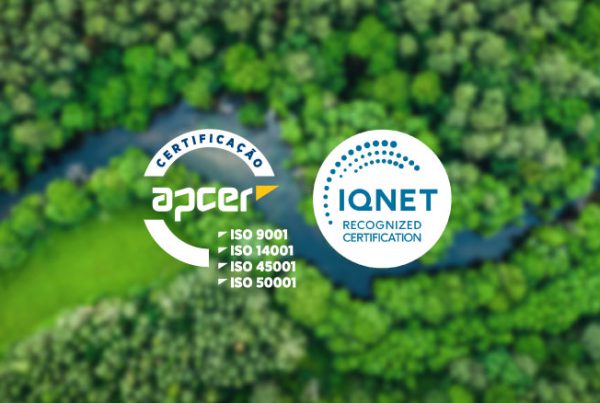Technical education in Latin America has with stood intense transformations as a product of changing economic and educational policies. Fortunately, technical education schools are still present and retain their potential in most of our countries.
Those of us, who travel from students’ roles to teachers’ roles in educational technical institutions, are committed to improving and adapting technical education to the new global challenges, which determine the technological characteristics of industry and work.
This challenge requires focusing on design, entrepreneurship and technological innovation as essential keys for local industrial development, understood as an objective that must organize the productive actions of a society, fostering companies and industries and ensuring an adequate level of welfare for its population.
Aiming to move towards that well-being, as a community, we must incorporate methodologies and practices to take care of the territory, addressing the multidimensional complexity that is required and systematically including environmental care.
The environmental dimension, together with the key approaches described, must be properly integrated into the technical education of each level of training.
From the pedagogical dimension, we rescue those technical practices of the traditional workshop as a method, in which, the project practices under an entrepreneurial and technological approach, point to the local economic development and can be gradually incorporated into the training process.
From this perspective, the model of “industrial school†is conceived, where the educational community can fully practice the technological and industrial practices necessary to train entrepreneurial technicians with social commitment and environmentally responsible.
For this reason, these criteria must shape the educational purpose to develop models, establishments and methodologies, consistent with the type of country, region or local environment. In other words, educate for the projected future.
The debates about technical education, its methodologies and purpose, generalized after the Second World War, led to the emergence of various roles in the processes of economic and productive development of countries. In this context, technical training has played a key role in the implementation of technology development policies.

When analyzing the evolution of technical secondary education and how it was influenced by the different production models, from Fordism to local development in globalization, we find a constant: a lot of technology and little industry.
By examining these debates and delving into representative cases of Latin American countries, these reflect particular approaches for each territory. Many focused on the needs of marginalized sectors of the population, conceiving that training for work in the secondary education instance is perhaps the last opportunity for training for many sectors, but generally, the educational solutions evidenced have a technical artisan character.
This type of approach, which is socially sensitive and proposes solutions for the community based on local resources, finds a high level of failure in the market, given the contrast of industrial products.
Based on the logic of anticipation that we have verified in the history of the educational technical systems, we warn that the current configurations do not adjust to the productive challenges, dominated by market competitions, in many cases supported by technological innovations, recycling of materials and care environmental.
Understanding this, we consider that technical and professional innovation in conceptual and technological innovation should be added to the scheme, in order to respond to the productive and industrial needs that – in the immediate future – will be presented as indispensable to reach an acceptable degree of competitiveness in the national market, regional and international.
The practices should be developed, applied and exercised for each of the industrial sectors, so that together with creative and social-collaborative tools, they can obtain improvements in processes and products that impact on the various productive scales: entrepreneurship, small and medium-sized industries.
Likewise, the accent should be in the curricular spaces, in which students are trained for the development of enterprises, from the discovery of the need to the final execution of the project. Specifically, to train future industrial technicians in the detection of potential productive niches and their capitalization for the future work, as a key to contribute to local-territorial development.
In this framework, education should develop competencies and contribute to the generation of business initiatives, based on negotiation skills, leadership, development of new products, creative thinking and technological innovation, always contemplating the different production scales.
In particular, the contents related to product design and entrepreneurship allow the experimental passage through a wide variety of topics, ranging from micro-entrepreneurship to local development, including all the productive instances in various industrial sectors; from the search for ideas and product design (through production) to commercialization. The study of subjects inherent to the industry and the practices in the productive environment (in industry or at school), can significantly improve the labor integration of the graduates.
As a corollary, the challenge is to evolve from technical to industrial education, it will be necessary to incorporate in the theory and practice, the processes of medium and high series, where a wide variety of materials and production technologies are involved, contemplating the different sectors industrial (food, plastic, metalworking, automotive). In this way, we can transform the profile of “technical craftsman†to “technological entrepreneurâ€.
Contribution by:
Federico Del Giorgio Solfa
Federico Del Giorgio Solfa is National Mechanical Technician of the National Council of Technical Education (CONET).
Mr. Del Giorgio Solfa is Industrial Designer, Professor in Industrial Design and has a Master in International Marketing. He is regular Professor in the Chair of Project Management and Professor of the Master in Design and Marketing, National University of La Plata (UNLP).
Specialist in Public Management, National University of Tres de Febrero (UNTREF), he also holds a Master in Law, Economics and Politics dell’Unione Europea, Università degli Studi di Padova (UNIPD).
He also accumulates the position of Graduate Professor at the National University of Lomas de Zamora (UNLZ) with the position of Visiting Professor at the Doctorate of Design, University of Palermo.
He is also Assistant Investigator without Director and Member of the Honorary Advisory Commission on Engineering, Architecture and Technology (NART), of the Scientific Research Commission of the Province of Buenos Aires (CICPBA).
Professor Del Giorgio Solfa is Member of the Peer Committee on Applied Sciences of the National Commission for University Evaluation and Accreditation (CONEAU).
An Author and international essayist, among his books are: Introduction to materials and production technologies (2009), Benchmarking in the public sector: contributions and implementation proposals for the province of Buenos Aires (2012), and as co-author: Pursuing Competition and Regulatory Reforms for Achieving Sustainable Development Goals (2016) and Education, design and innovation in Latin America (2018).



